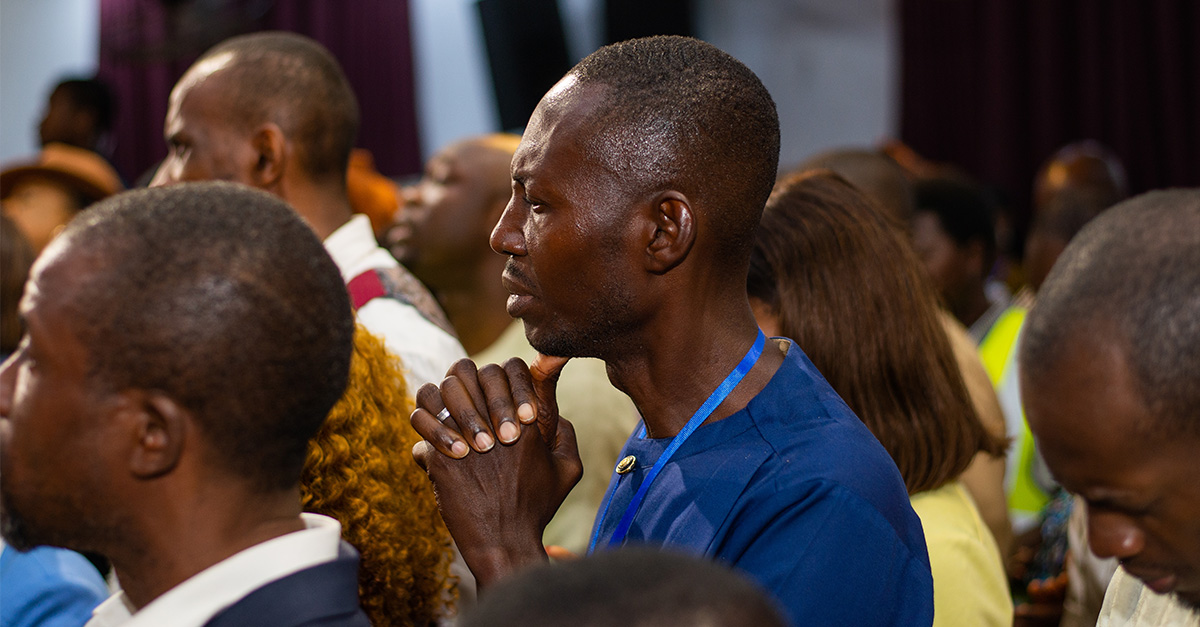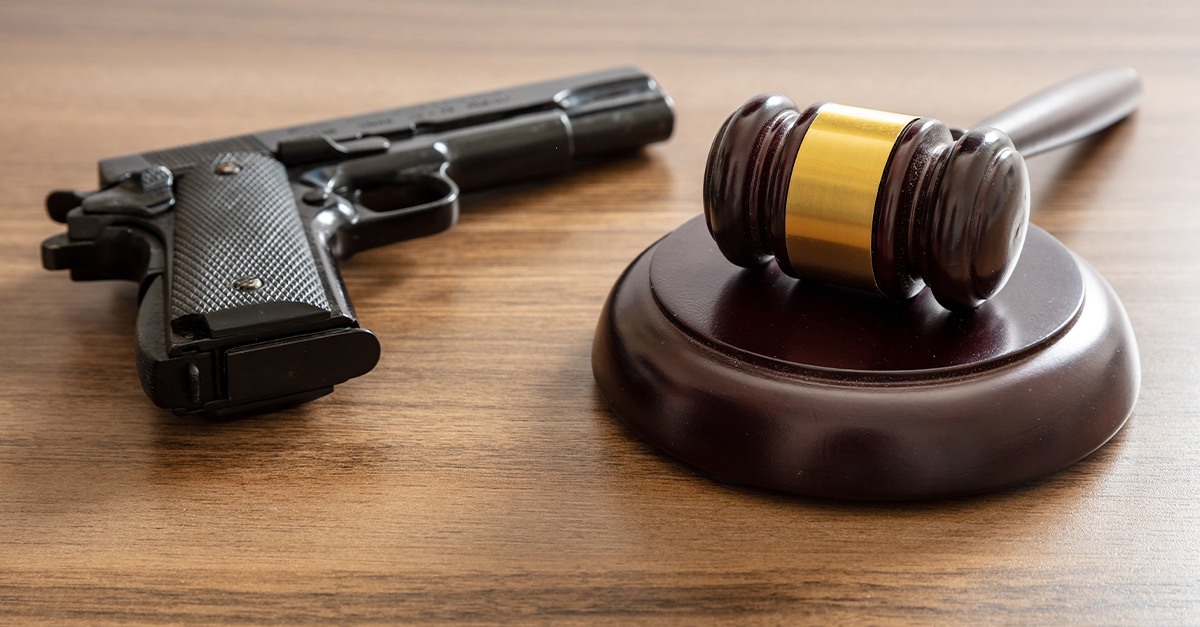


Get a free copy of Parental Rights & Education when you subscribe to our newsletter!

This African nation is probably the most dangerous place in the world to be a Christian right now, but U.S. officials blame the terror and hostilities on climate change, not religious bigotry.
Human rights and religious freedom groups say they are shocked at the State Department’s refusal to put Nigeria on its Countries of Particular Concern list of religious freedom violators despite mass persecution and pleas for action.
Secretary of State Antony Blinken released the list on January 4, and conspicuously missing were Nigeria, the nation where 90 percent of the world’s martyrs last year were located, as well as India, which continues to persecute Christians through its harsh anti-conversion laws.
The countries listed include China, Cuba, the DPRK, Eritrea, Iran, Nicaragua, Pakistan, Russia, Saudi Arabia, Tajikistan, and Turkmenistan. However, Nigeria and India did not even make the cut for Blinken’s Special Watch List, a less severe designation, which featured Algeria, Azerbaijan, the Central African Republic, Comoros, and Vietnam.
This is the third year in a row that Nigeria has been left off of either list, despite pleas from Nigerians, religious freedom groups, human rights organizations, and legislators for a stronger U.S. response to the ongoing persecution, a persecution so severe that it has been deemed by some to be a genocide.
The decision was even more shocking considering that it came just after Christians were attacked during the Christmas season in more than 20 villages, with over 32,000 Nigerians affected by the onslaught. Counts differ, but approximately 200 people were killed by Fulani herders between December 23 and December 28. Another 300 people were injured and nearly 30,000 were forced to flee their homes. At least 27 homes were burned.
It is yet another despicable instance of violence against Christians by Islamic Fulani tribesmen and the Islamic terror group Boko Haram over the last several years. Between them, the two groups have engaged in murder, church arson, kidnappings, ransoms, and targeted killing of clergy.
The State Department did designate Boko Haram as an Entity of Particular Concern.
Religious freedom organizations have pleaded with the State Department for years to place Nigeria back on the list following its puzzling removal of the nation in 2021, after it had placed Nigeria on the list in 2020.
Just weeks before the list was released, religious freedom advocates sent a letter to Congress urging lawmakers to encourage the administration to restore Nigeria to the list. Despite the letter, the State Department refused to heed their pleas. It has been the position of the State Department that the violence is the result of climate change that is causing land disputes between Fulani tribesmen and Christian villagers. Those in Nigeria have repeatedly refuted that theory.
In response to the State Department’s list, many groups are criticizing the administration.
The U.S. Commission on International Religious Freedom (USCIRF) had recommended in its annual report that Nigeria and India be designated as CPCs. They released a statement calling for a congressional hearing after expressing its “extreme disappointment” at the State Department’s “failure” to include the two nations. In a statement, USCIRF Chair Abraham Cooper and Vice Chair Frederick A Davie, said,
“There is no justification as to why the State Department did not designate Nigeria or India as a Country of Particular Concern, despite its own reporting and statements…Days before Christmas, hundreds of Christians were killed in Nigeria, along with their Pastor. This is just the latest example of deadly violence against religious communities in Nigeria that even the State Department has condemned. The majority of Commissioners have travelled to Nigeria and noted the threats to freedom of religion or belief and the deadly implications to religious communities. In India, in addition to perpetrating egregious religious freedom violations within its borders, the government has increased its transnational repression activities targeting religious minorities abroad and those advocating on their behalf.”
They added:
“USCIRF rejects the State Department’s decision to omit Nigeria and India as CPCs. We met with the State Department on many occasions to sound the alarm about these countries, but not all of our recommendations have been followed. We will not be deterred and will continue our role as a congressionally mandated watchdog to ensure the U.S. government prioritizes religious freedom as a key component of U.S. foreign policy.”
Religious freedom group Alliance Defending Freedom International called for action from Congress to add pressure on Nigeria, noting that of the 5,621 Christians killed for their faith last year around the world, 90 percent were Nigerian.
Nigerian Bishop Matthew Hassan Kukah painted a grim picture of the plight of Nigerian Christians following the murders over Christmas:
“Over the years, these murderers have left their footprints of blood and tears across the length and breadth of the entire northern states, indiscriminately wrecking destruction across large swaths of land and communities. In all this, the Nigerian state and its security agencies are blindsided.”
Kukah said that funerals and coffins are now part of “our landscape.”
“While we religious leaders have continued to use our moral authority to encourage our people not to take the laws into their hands, we risk being swept away by the anger and frustration of our people,” Kukah continued, noting that “cups of sorrow” are “overflowing.”
“We have cried enough tears. We may pretend that we are not at war, but truly, a war is being waged against the Nigerian state and its people. God forbid, but we could snap anytime, anywhere and for any reason.”
Religious freedom advocates also criticize the Nigerian government for its blasphemy laws, which allow Christians to be extrajudicially attacked and persecuted as a result. USCIRF in their letter called out the “unprosecuted mob killing of student Deborah Emmanuel Yakubu after she was accused of blasphemy and the unprosecuted serious death threats against the Sultan of Sokoto, Sokoto’s Catholic bishop, and Rhoda Jatau, a Christian woman, all three of whom were targeted for expressing disapproval of Yakubu’s murder.”
12 Nigerian State governments adhere to Sharia law.
In India, “anti-conversion” laws are how Hindu groups, including powerful political parties, aim to stifle Christianity. The laws are supposedly intended to prevent Christians from evangelizing or forcing their views on non-Christians. However, the laws are also used to prevent Christians from conducting any form of religious exercise, including Sunday worship services, Bible studies, prayer meetings, and even charitable outreach.

Why the State Department refuses to designate Nigeria or India as nations of particular concern on its religious freedom list is puzzling. And why the West is so intent on labeling the genocide in Nigeria as a land dispute or related to climate change is also peculiar. The Freedom Center could speculate as to motives, but rather we will just assume it is indicative of the larger ignorance and apathy surrounding the persecution of Christians.
What is happening in Nigeria is a coordinated attack on Christians, with near daily instances whereby peaceful communities of the faithful are being terrorized. There is no place less safe to be a Christian than in Nigeria right now, as thousands of Christians are killed there each year. Meanwhile in India, government-sanctioned abuse and villainizing of Christians has only grown more severe in recent years.
If any nation should be considered a Country of Particular Concern when it comes to religious persecution, it is these two.
It is important for Christians to realize that persecution is just as prevalent right now as it has been in the history of the Church. While we in the West do not see the violence, Christians all around the world do — and they remain true to Christ in the face of the most horrific torment. We must pray for these Christians living in hostile areas and advocate for religious freedom for all. No one should ever be harassed, harmed, killed, or displaced because of their faith.
The Church must be involved in public discourse and influence. That’s why we write — so our readers can be equipped to understand and pursue righteous change in the world. For more timely, informative, and faith-based content, subscribe to the Standing for Freedom Center newsletter.
Christian conservative news and issues that matter. Curated just for you!
